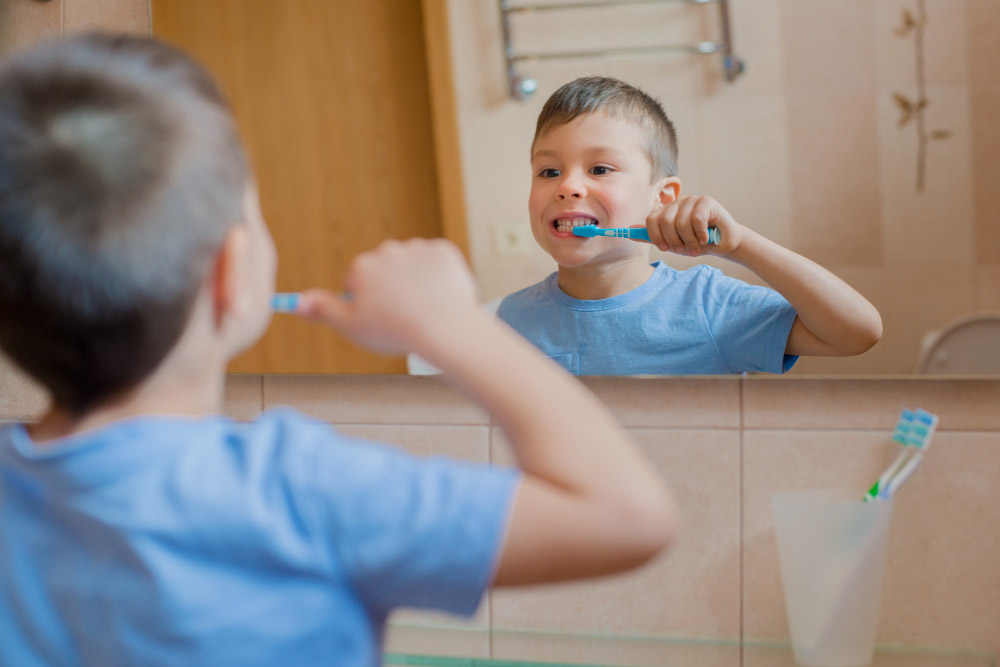Introduction to Children’s Dental Health
In the formative years of a child’s life, dental health plays a pivotal role in ensuring a foundation for strong and healthy teeth into adulthood. The habits developed during childhood, in terms of dental hygiene, diet, and regular dental check-ups, significantly impact the overall health and well-being of an individual. In Australia, where lifestyle diseases are increasingly prevalent, instilling good dental practices early on is not just advisable; it’s imperative.
Understanding Children’s Teeth Development
The journey of dental development in children is fascinating. Typically, the first set of teeth, known as ‘baby teeth’ or deciduous teeth, begins to erupt around the age of six months. However, this can vary, and some infants may have their first tooth as early as three months or as late as twelve months. By the age of three, most children will have a full set of 20 primary teeth. These teeth are placeholders for the permanent teeth that will follow and play a crucial role in the development of proper speech and chewing habits.
As children grow, these baby teeth begin to fall out, a process that typically starts around the age of six. By the time they reach their teenage years, most children will have replaced their primary teeth with a full set of 32 permanent teeth. This includes the third molars, commonly known as wisdom teeth, which usually emerge in the late teens or early twenties.
The Importance of Early Dental Care
In Australia, where dental health is given considerable importance, early dental care is recognised as a critical component of overall health. The Australian Dental Association (ADA) emphasises the necessity of introducing children to proper dental hygiene from an early age. Regular brushing and flossing, along with routine dental check-ups, can prevent a host of dental problems, including cavities, gum disease, and early tooth loss.
Early dental visits also acclimatise children to the dental office environment, reducing anxiety and fear associated with dental treatments in the future. The ADA recommends that a child’s first dental visit should occur within six months of the appearance of the first tooth or by their first birthday. These early visits allow for the detection of any early signs of dental problems and provide an opportunity for parents to learn about proper dental care for their children.
Common Dental Issues in Children
Children, like adults, are susceptible to a range of dental issues. The most common among these is dental caries or cavities. According to the Australian Institute of Health and Welfare, about half of Australian children aged 6 have experienced decay in their baby teeth. This is often attributed to excessive consumption of sugary foods and beverages, coupled with inadequate brushing habits.
Another common issue is tooth decay, which can occur even in very young children, commonly referred to as ‘bottle decay’. This happens when teeth are frequently exposed to liquids containing sugars, like milk, fruit juices, and other sweetened drinks. To prevent this, it’s important to avoid putting a child to bed with a bottle and to encourage drinking from a cup as they approach their first birthday.
Misalignment of teeth, or malocclusion, is another concern. While some cases are hereditary, others can be caused by prolonged thumb sucking, pacifier use beyond the age of three, or loss of baby teeth prematurely. Regular dental check-ups can help in early detection and treatment of these issues.
Effective Brushing Techniques for Children
Teaching children effective brushing techniques is fundamental to maintaining good dental health. The ADA recommends using a pea-sized amount of fluoride toothpaste for children aged 18 months to six years. Children younger than 18 months should have their teeth cleaned with water alone.
When brushing, the toothbrush should be held at a 45-degree angle towards the gums of both upper and lower teeth. The brush should move in gentle, circular motions to clean the outer surfaces of each tooth. This technique should be repeated on the inside surfaces and chewing surfaces of the teeth. For the front teeth, the brush should be held vertically to brush the inside surfaces using up and down strokes.
It’s crucial for parents to supervise children’s brushing until they are about 8 years old, ensuring they do not swallow toothpaste and that they reach all teeth surfaces effectively. Regular replacement of toothbrushes every three months or when the bristles are frayed is also important for effective cleaning.
The Role of Diet in Dental Health
Diet plays a critical role in the dental health of children. The Australian Dietary Guidelines provide a comprehensive framework for understanding the importance of a balanced diet, which is essential not just for general health but also for maintaining healthy teeth and gums. Foods rich in calcium, such as milk, cheese, and yogurt, are important for the development and maintenance of strong teeth. Additionally, crunchy fruits and vegetables like apples and carrots help in cleaning teeth and gums due to their high fibre content.
It’s crucial to limit sugary snacks and drinks, which are major contributors to tooth decay. The Australian Government’s ‘Reducing Sugar Consumption’ initiative emphasises minimising the intake of added sugars, a key step in preventing dental cavities in children. Encouraging children to drink water, especially fluoridated water, is another healthy practice, as it helps rinse away food particles and sugar residues.
Regular Dental Check-ups: Frequency and Importance
Regular dental check-ups are essential for maintaining children’s dental health. The Australian Dental Association recommends that children have a dental examination at least once a year. These check-ups are vital for early detection and treatment of dental problems, such as cavities and gum disease, and for assessing the proper development of teeth and jaws.
During these visits, dentists can also apply preventative treatments like fluoride varnish, which can significantly reduce the risk of decay. Moreover, regular dental visits familiarise children with the dental environment, reducing anxiety and fear associated with dental treatments in the future.
Dealing with Dental Anxiety in Children
Dental anxiety in children is a common challenge. It’s essential to address this issue to ensure that children do not avoid dental visits, which could lead to serious dental health problems. Parents can play a significant role in reducing dental anxiety by talking positively about the dentist and dental treatments, reading books about dental visits, and avoiding using a dental visit as a threat or punishment.
Many Australian dental practices, including paediatric specialists, are equipped to handle dental anxiety in children. They create a friendly and welcoming environment and use techniques such as ‘tell-show-do’ to explain procedures and help children feel at ease.
Preventive Measures Beyond Brushing
Preventive dental care extends beyond routine brushing and flossing. The use of dental sealants is a common preventive measure recommended by Australian dental professionals. Sealants are thin, protective coatings applied to the chewing surfaces of back teeth (molars), preventing decay.
Another important aspect is the use of mouth guards for children who participate in sports, especially contact sports. Mouth guards help protect teeth from injury and can be custom-fitted by dentists for comfort and effectiveness.
In conclusion, establishing healthy dental habits early in life is crucial for ensuring the long-term dental health of children. Parents and caregivers play a vital role in this endeavour by encouraging proper brushing techniques, maintaining a healthy diet, ensuring regular dental check-ups, and addressing dental anxiety.
For families in Fairfield, Victoria, seeking professional dental care for their children, ‘Care For Smiles’ offers a range of services designed to support young patients in maintaining optimal dental health. Their approach to paediatric dentistry focuses on preventative care and patient education, ensuring a positive and anxiety-free experience for children.
Maintaining children’s dental health is a collaborative effort involving parents, dental professionals, and the community. By instilling good dental habits from an early age, we can ensure that our children grow up with strong, healthy teeth and a bright smile.


